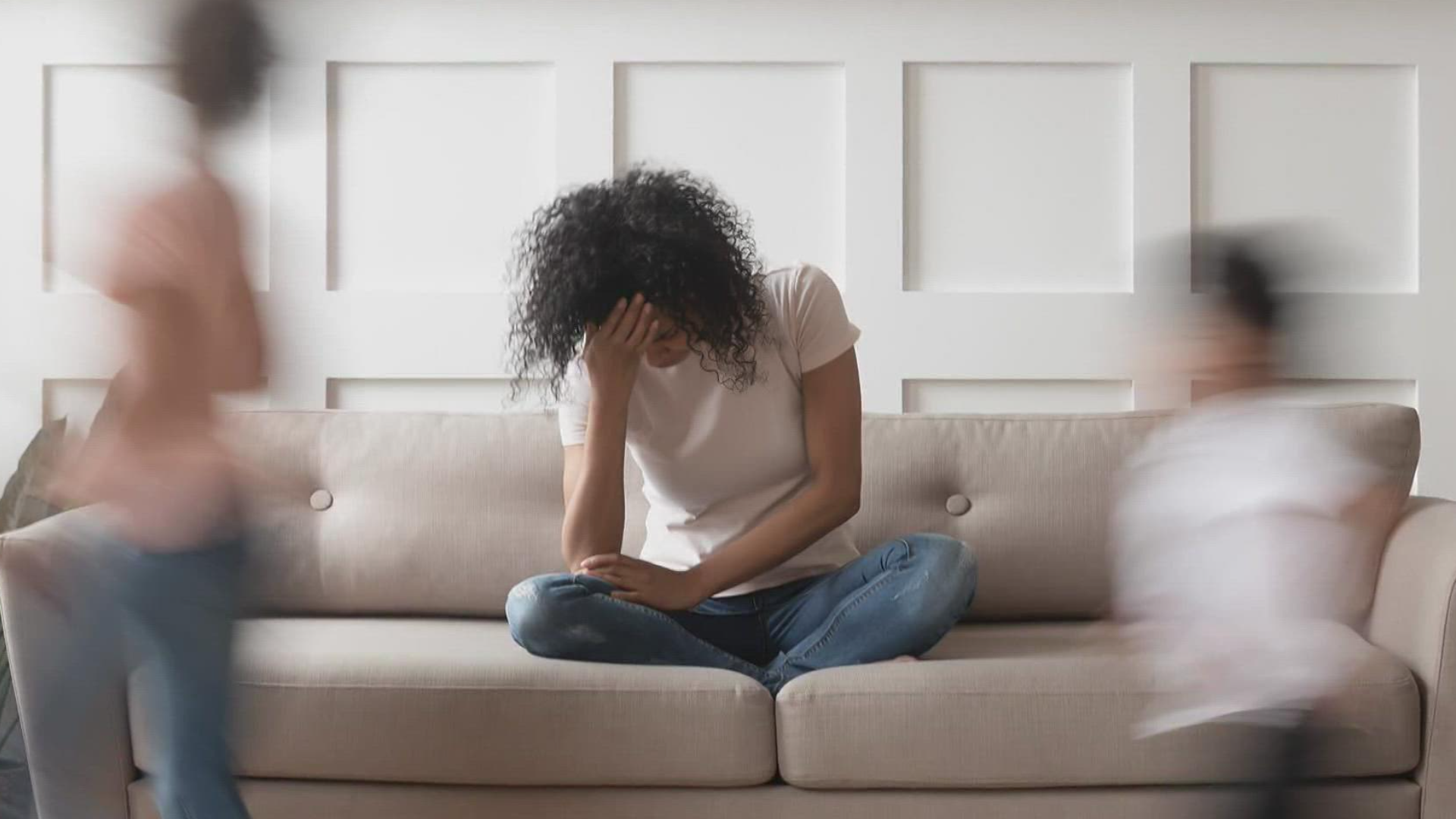ATLANTA — As COVID-19 continues, the toll on parents, especially those juggling it all alone, can be overwhelming.
"It was really rough for a while," Ashlee Johnson, who lost her job during the pandemic told 11Alive. "We stayed in hotels while I was working the temp job. I ran out of money and had to go back home to my family."
11Alive first met Ashlee in January, when a tree fell onto the home the young widow shared with her two kids. Since then, she has juggled providing for her family and childcare.
Yet, it's only recently with a new job she loves and her four-year-old son now in school that Ashlee said she feels like she's starting to recover.
"I mean I think we're all holding on the best we can," she said. "Trying to rebuild everything I lost during the pandemic."
Housing, employment, childcare are all familiar worries Dr. Marika Lindholm hears routinely on her social platform ESME: Empowering Solo Moms Everywhere.
"Watching pretty scary situations around food, around housing, around mental health," Dr. Lindholm said of the pandemic's impact. "How do you keep it all together when you're already isolated and now you're forced to be isolated?"
An August study from the Institute for Women's Policy Research took a closer look at such issues, finding young mothers continue to worry about economic insecurity following the height of the pandemic.
According to researchers, young single mothers worry the most with 65% frequently concerned about paying their bills, and three out of four worried about taking a pay cut.
Such stress can all take a toll on mental health, but Dr. Lindholm said there are strategies to help parents trying to do it all.
"Ask for help," she explained. "Team up. We do see the numbers going down. Many people are vaccinated. It's the time to get on the playground, talk to other parents and create situations where you can help each other out."
Another strategy Dr. Lindholm said is to reduce your standards. She advises worrying less about tasks like cleaning the bathroom and more about spending time with your child or taking time to recharge.
At the end of the day, don't forget to track your progress, Dr. Lindholm reminded.
"Try to realize 'actually my kid is doing pretty good.' Progress we know is very important for mental health," she added.
As for Ashlee, she has found comfort and community support online, using hashtags to connect with parents in similar situations.
"I think building that sense of community and support system is the most important thing you can do as a single mom," she said.
Are you single parenting during the pandemic? Visit the Child Mind Institute for more ways to help.

